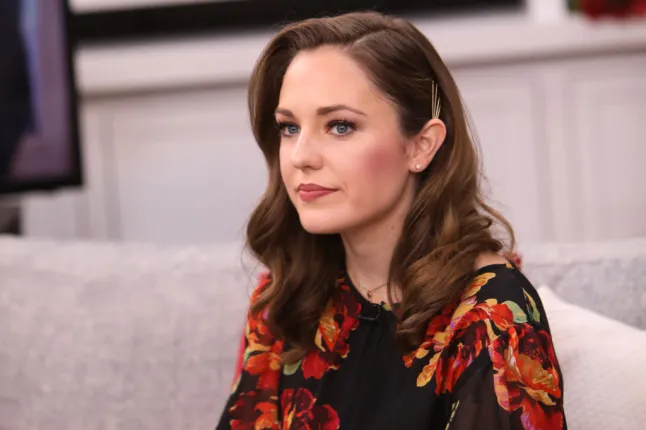When Does Broadway Welcome Back Laura Osnes?
by Chris Peterson
I want to write this in the spirit of trying to be better about unifying as opposed to separating. Theatre has always been at its strongest when it brings people together, not when it drives them apart. And with that in mind, I find myself asking a difficult question: when does Broadway welcome someone back?
Not when do we forget, not when do we excuse, but when do we allow space for a colleague who stumbled, who made choices that angered or hurt many, to re-enter the fold without being defined forever by that moment. And every time I think about that question, I find myself circling back to Laura Osnes.
She really did have the kind of Broadway career people dream about. She was discovered on national television, won Grease: You’re the One That I Want!, and landed on Broadway as Sandy in 2007.
From there, she didn’t just fade into the background, she built a résumé that confirmed she was more than a reality show curiosity. South Pacific, Bonnie and Clyde, Cinderella, Bandstand—roles that earned her Tony nominations and a reputation as Broadway’s quintessential ingénue. She was a Rodgers and Hammerstein heroine come to life, with a crystal-clear soprano and an ability to make even the most old-fashioned material feel genuine.
And then, in 2021, it all ended.
The circumstances are well documented. She was scheduled to perform at a benefit concert in the Hamptons. The venue required proof of vaccination. She refused, citing personal medical choices. When the story broke, the backlash was immediate. Broadway was only just beginning to reopen after the pandemic shutdown. People were still grieving loved ones, still traumatized by the losses, still raw from the months of uncertainty.
Vaccine requirements were seen as both safety measure and moral contract, the thing that allowed casts, crews, and audiences to come together again with some sense of protection. In that fragile moment, Osnes’ refusal was received by many as reckless, even selfish.
I was one of the voices who spoke out against her. I believed then, and still believe, that if someone in the arts seemingly aligns themselves with Donald Trump or MAGA politics, they (at least) owe their colleagues a conversation(looking at you, Kristin Chenoweth). Silence in the face of policies and rhetoric that directly harm so many of us is complicity.
When Osnes not only refused the vaccine but also, in her public comments, framed herself as a kind of victim of cancel culture, it fueled assumptions about her politics. The narrative that she was quietly sympathetic to MAGA values filled in the blanks, and the damage was done. I know this firsthand because I was quoted in the lawsuit she later filed against the New York Post. My words, my criticism, were part of the legal record of her attempt to defend her reputation.
It is not easy to look back on that and see myself positioned inside the controversy. But with some distance, I keep returning to this: to my knowledge, Laura Osnes has never said or done anything definitively hateful.
Unlike Trump and his cronies, I have never seen her publicly disparage the LGBTQ+ community. She has never used her platform to mock or diminish others. She has not attacked marginalized communities. She made a choice that clashed deeply with the values and rules of her industry at a painful moment in history, and she paid dearly for it.
She’s not Zachary Levi, who full-throatedly supported Trump and even disgustingly invoked the death of Gavin Creel for political points(that’s worthy of a lifetime ban). She’s not Ben Vereen, who admitted to sexual misconduct. She’s not even Patti LuPone, who absolutely is a bully and got into a ton of hot water for her actions.
That is different from malice. And it is different from hate.
But with Patti, the Broadway community will eventually forgive her, just as they have with Ben Vereen. More than that, they’ll turn those moments into lore, folding them into the legend of Patti LuPone. We see them as the fire that fuels her artistry.
It’s fair to ask why, then, does Laura Osnes remain on the outside? Why does one artist’s volatility get celebrated while another’s quiet refusal leads to total exile? There is no consistent measure here, and the inconsistency should trouble us.
I am not here to argue that Laura Osnes should be given a second chance. That is not my decision, nor is it really up to any one person. The audiences, the producers, and the community as a whole will decide that if the time ever comes. What I am here to suggest is that the question of welcoming her back is not as simple as many made it in 2021. It is complicated. It is wrapped in grief and politics and perception. It cannot be reduced to a headline.
Maybe she never wants to return to Broadway. Maybe she has chosen another life entirely that makes her happy and successful. But if she does, then the conversation cannot only be about what happened at that benefit concert. It has to also reckon with what she did not do—she did not show hatred, she did not use cruelty, she did not weaponize her platform against her community. That distinction matters.
We say that theatre is supposed to unify. It is supposed to give us ways of seeing one another more fully, not less. And if we truly believe that, then perhaps the harder question isn’t whether Laura Osnes should be welcomed back, but whether we are the kind of community that is even capable of doing the welcoming at all.
